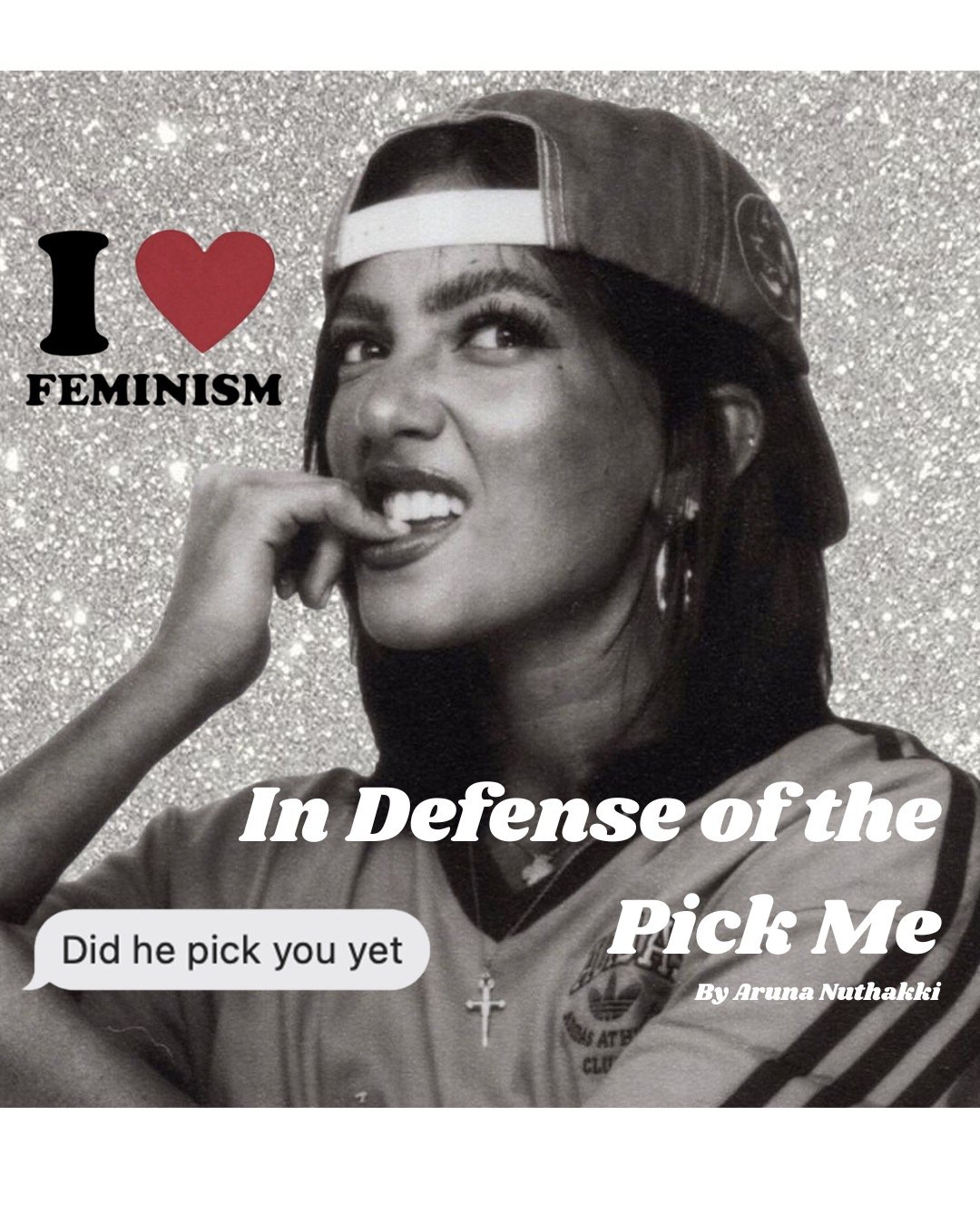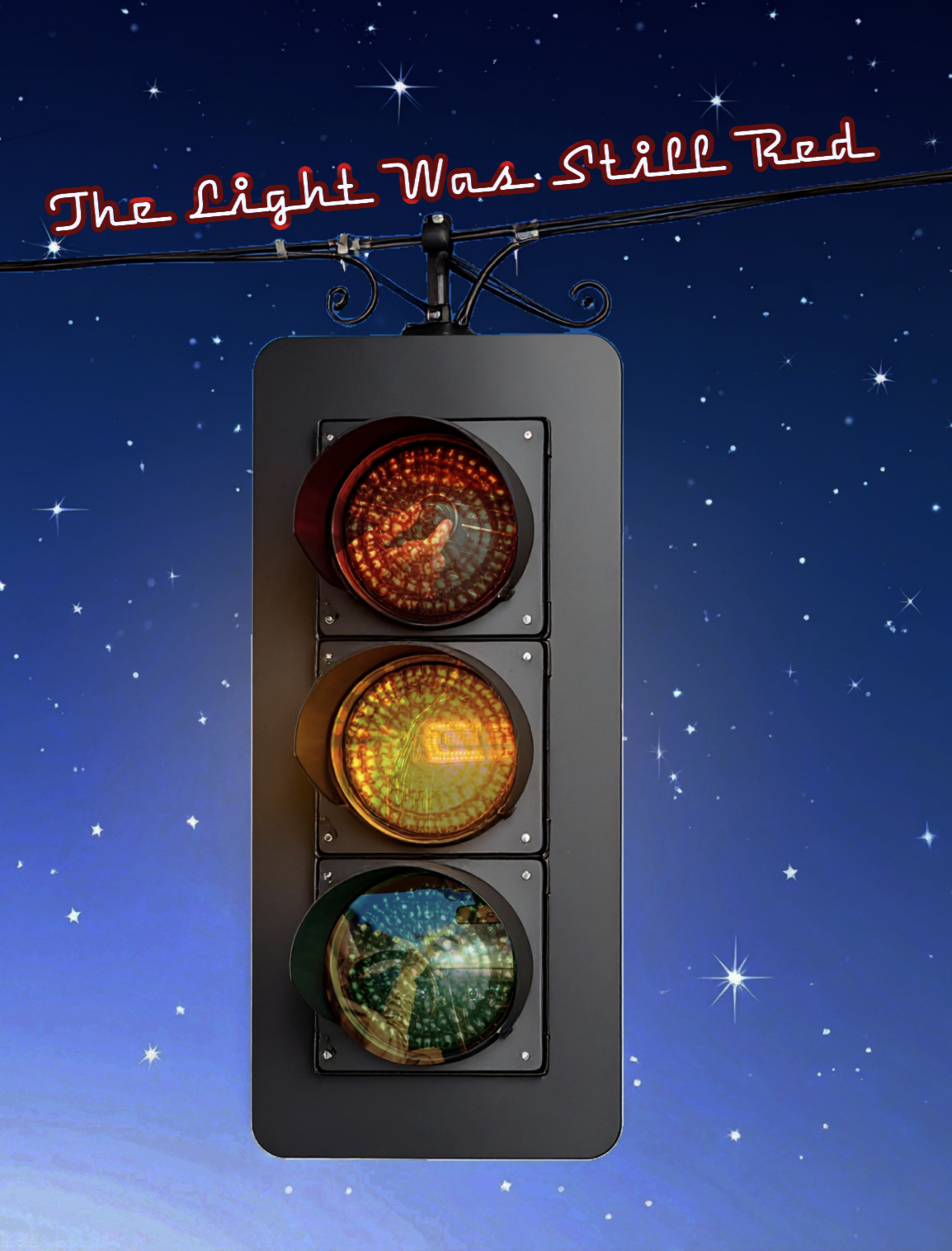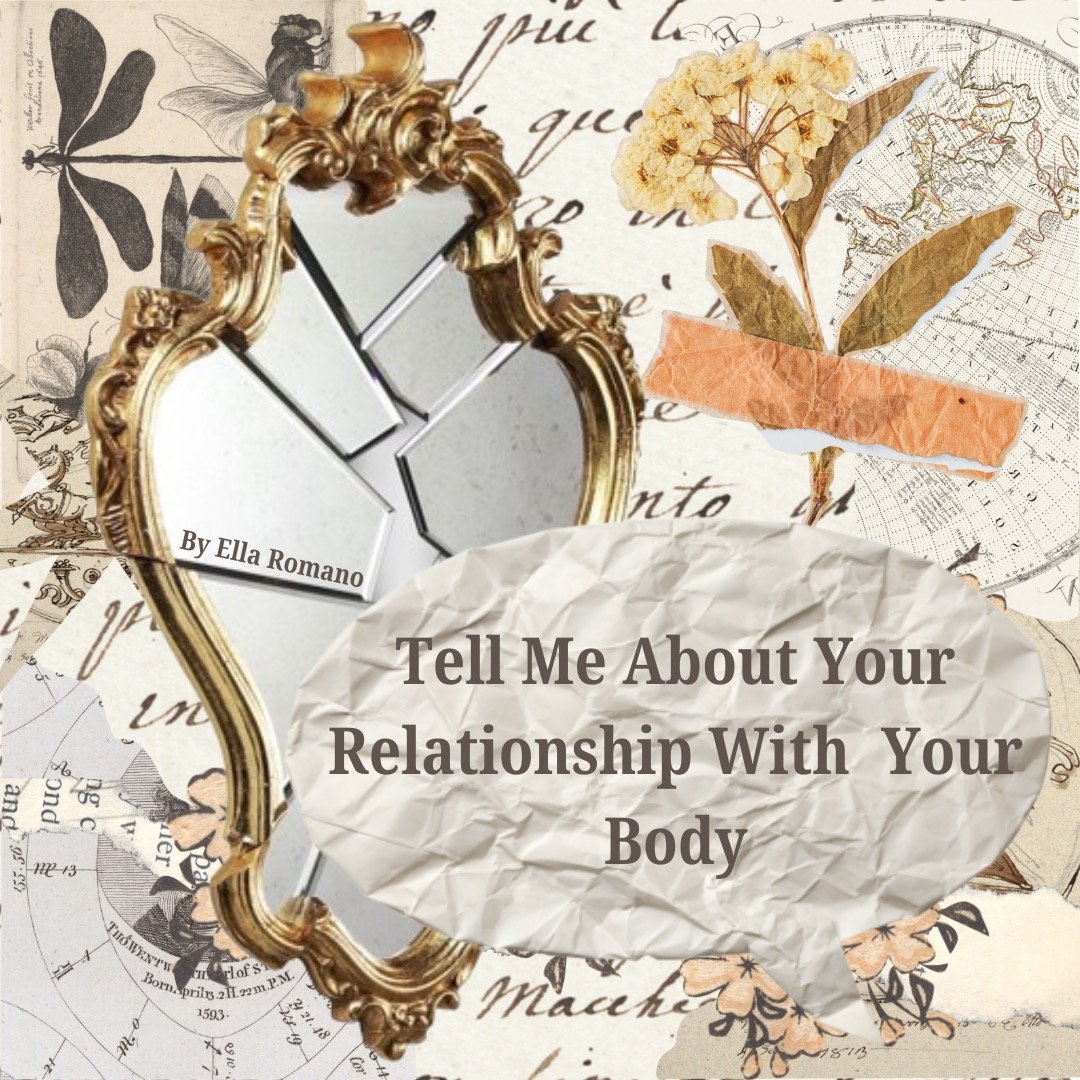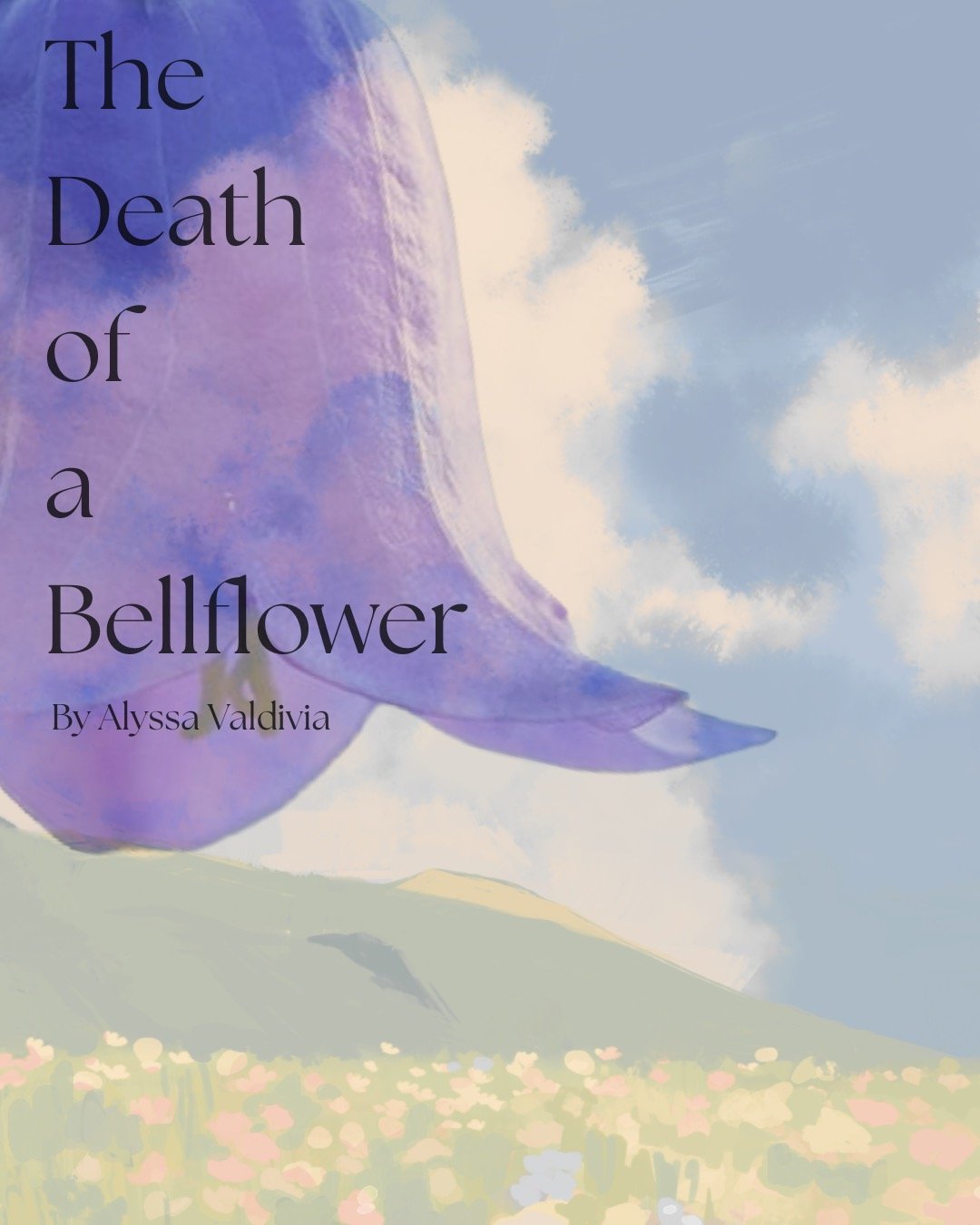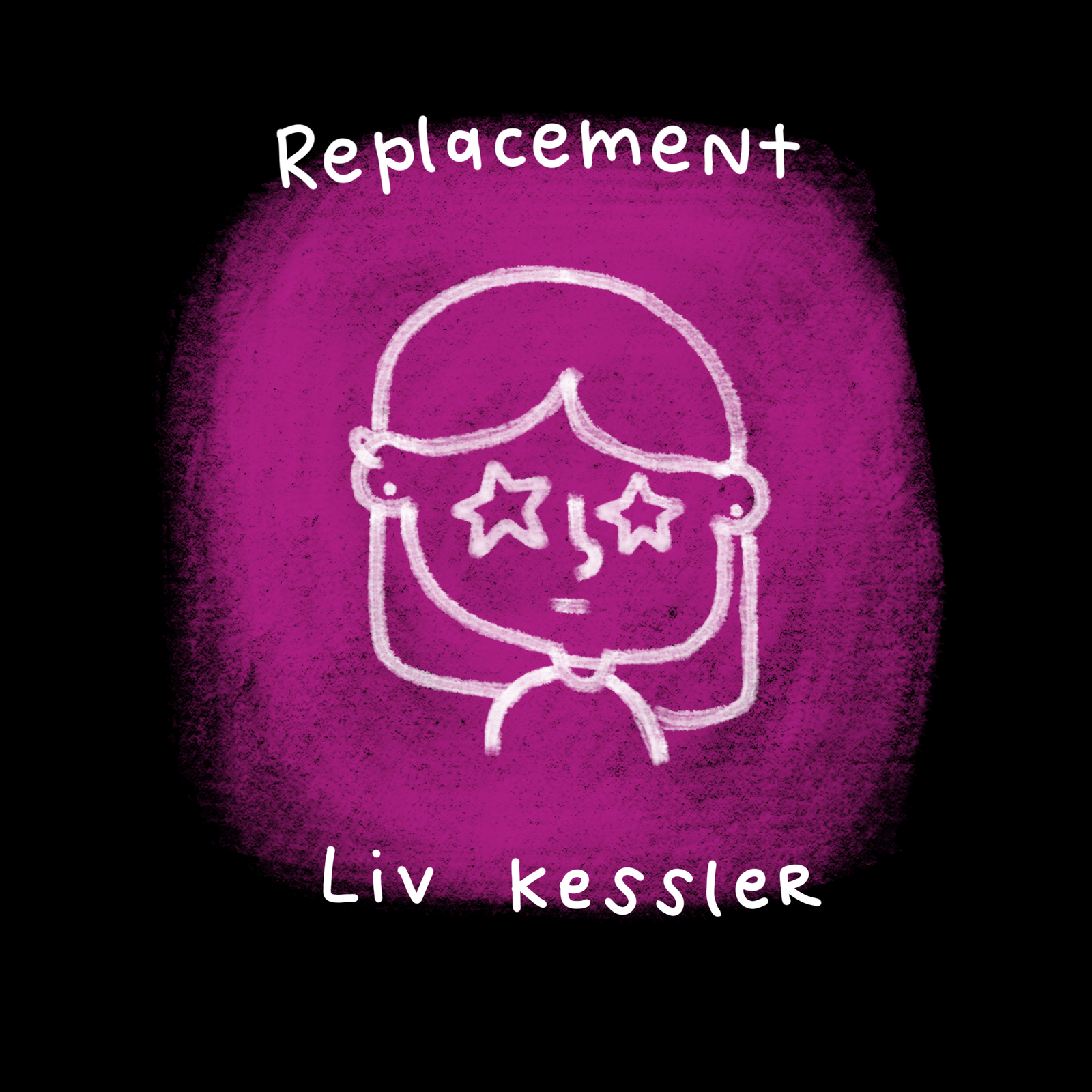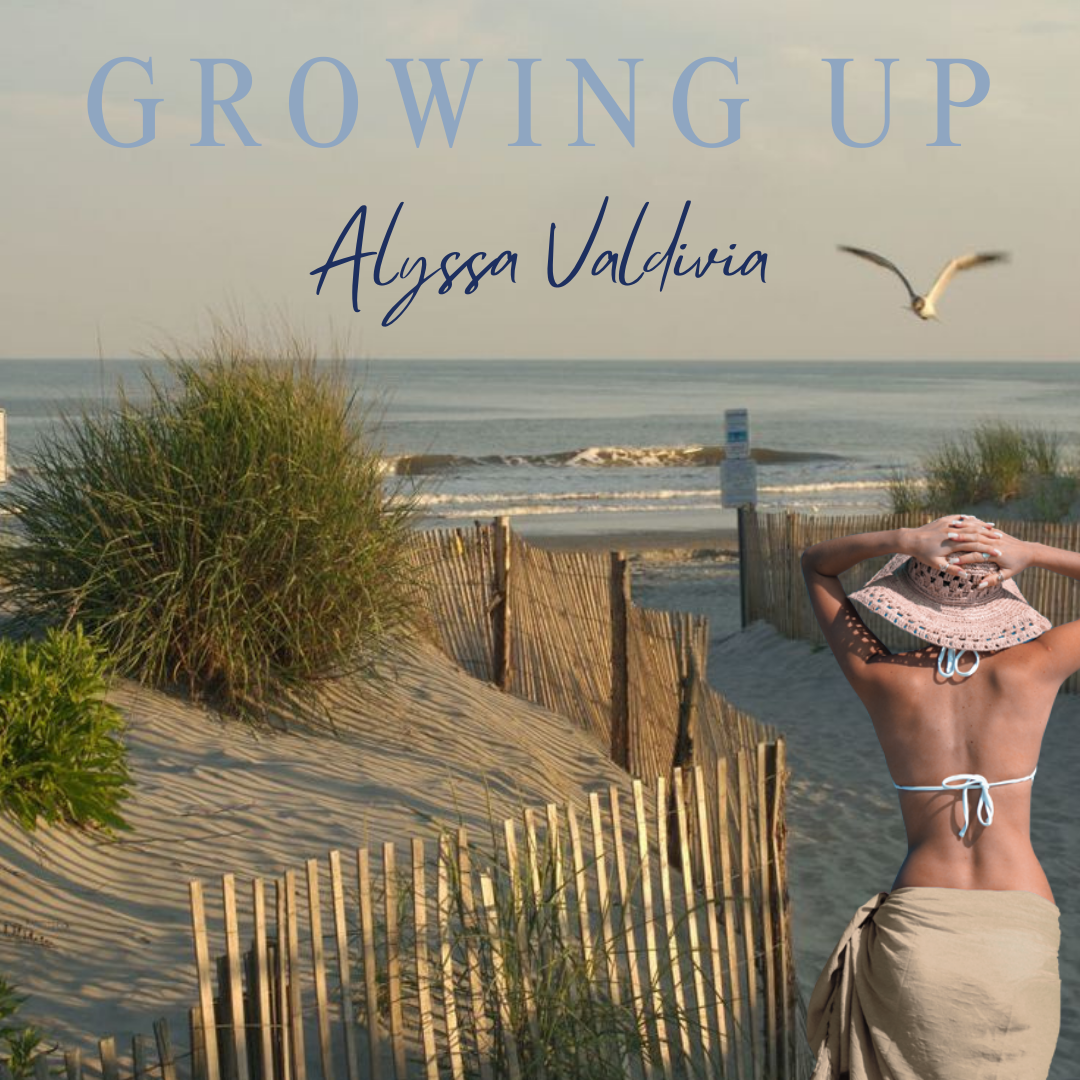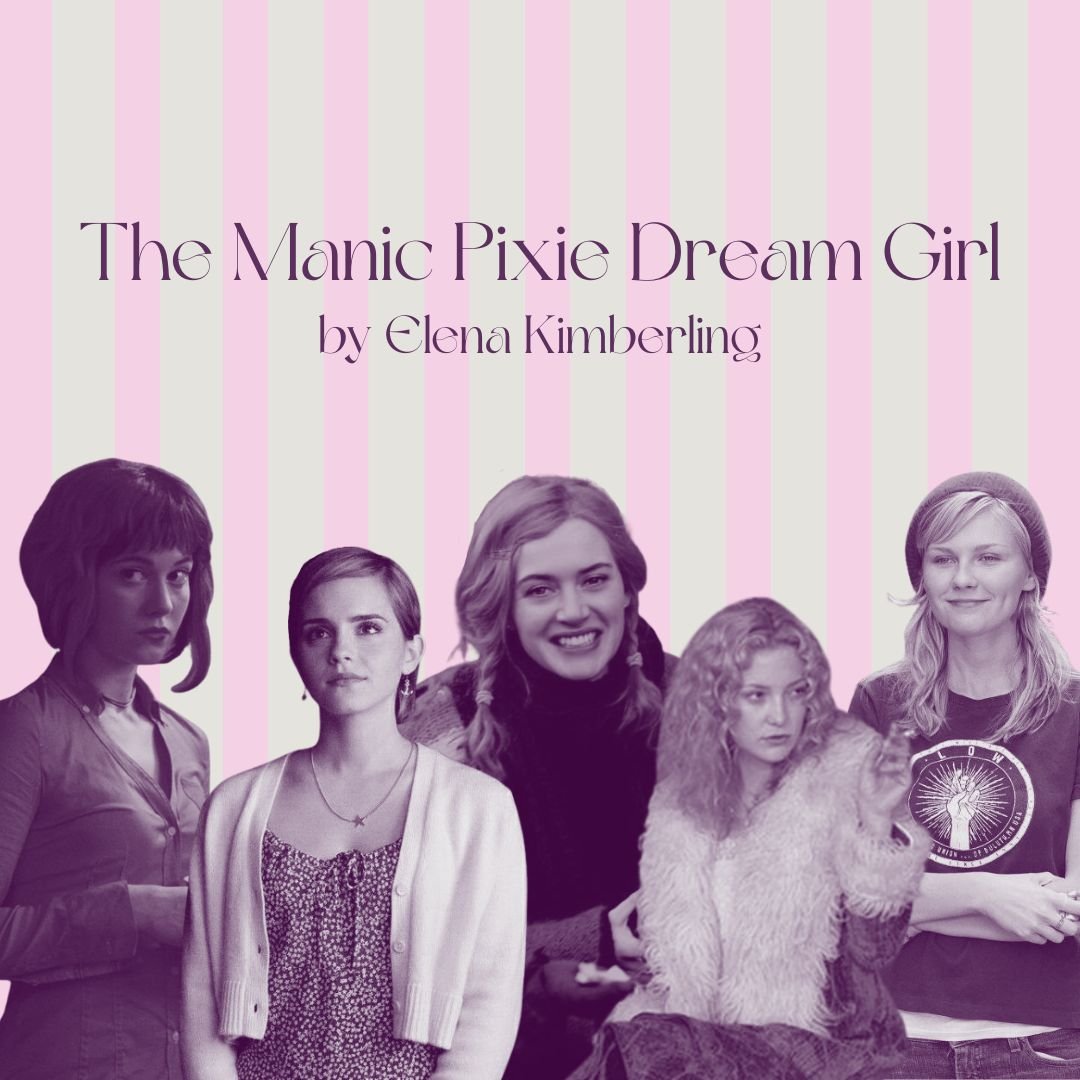You may be familiar with the lip-smacking, lash-batting ‘Hot Cheeto Girl’, or the ballet-hating, football-loving ‘Boy Mom’. But out of the many more labels TikTok churns out on the daily, few terms have been incorporated into everyday usage as much as the ‘Pick Me Girl’. Urban Dictionary defines a Pick Me as a “woman that is willing to do anything for male approval.” The Pick Me Girl is everywhere. She is that podcast host who thinks the modern woman is the reason for higher divorce rates and the overall collapse of human society. Conversely, the “Pick Me” could be someone who looks down on displays of femininity and girls in general as inferior to herself (and by extension the rest of the male population).
When the pick-me bashing first began, I was thrilled. Finally, I thought, “those bootlickers are getting what they deserve.” The Pick Me Girl was a pathetic, cowardly creature who contorted herself into whatever men wanted to see—devoid of any dignity, a morsel of pride. She didn’t have aspirations, goals and dreams. She functioned at a lower level than the rest of us. A ditsy, dimwitted doormat, chasing praise to feed her vanity, a monkey doing tricks for that fleeting male attention.
As I scrolled through TikTok comments (“did he pick you yet”), I began to look back at my own behavior around men. And suddenly, I began to feel ashamed of my own Pick Me tendencies. At eleven, I was one of the sole females on an all-boys soccer team. Growing up in India gave me little space to grow as a young female soccer player; all-girls teams were rare in my city, and restricted to college athletes and high schoolers. And so, for nearly five years, I spent four days a week trying to immerse myself into a team of boys that didn’t want me there. At first, they never passed the ball to me, and I accepted it without complaint. When they began to warm up to the idea of letting me play, I would pass the ball to someone “more capable” almost immediately. I knew that a mistake, any misstep on my part would be a reason for my teammates to label me an amateur, and question my abilities.
I wanted to be a bro. I wanted, desperately, to be able to claim my place on the team. And so I, like the Pick Me girls I was denouncing, fawned and bootlicked. And that worked wonders for me. I discovered that many boys, and later, men, thrived on admiration—especially from the female sex. So I doted, and I groveled. I knew that my position on the team was always in jeopardy if I showed any signs of weakness. I knew how lucky I was to be able to tag along with the boys; I felt like they were doing me a favor by letting me onto the team. They were my only ticket to club soccer, and I was determined to get them to like me. I was careful not to get mad that they didn’t pass me the ball. I didn’t demand that I be invited to the informal practice sessions, and I did everything I could to convince them that I was different from the rest of the female sex. And that strategy worked for me. I got to stay on the team for five years and I managed to get to a skill level that I couldn’t have reached without a coach or a team. Sure, I molded myself into someone convenient for my teammates. But that was what I had to do to make it through that journey.
Women are too often represented as seeking out male validation for “petty” things like their own vanity or flattery, and the validation men give is seen as a “favor” or a quick fix for her self-esteem. A Pick Me’s objectives are boxed into two categories, the first being “she thinks she’s better than the rest of us”, and the second “she’s insecure and starved for male attention”. Both of these boxes—no, cages—reduce Pick Me’s to bimbos without a thought in their head, and only having the most superficial needs. I believe the judgement that the world has cast on the Pick Me is inherently misogynistic and anti-woman. And somehow, we have been conditioned into believing that witch-hunting these women is some sort of feminist, noble deed for “sisterhood.”
Let me be frank: Male validation always felt more important to me than female acceptance. A male professor calling me intelligent? An honor indeed. A man, especially one of high standing and success finding me remarkable enough to engage with? I am conditioned to chalk that up as a victory. And rightly so—I, like many other women, have observed and analyzed the men that run things. “It is glaringly apparent that, historically, many men did not see it as necessary to give women the time of day. And often, when they do, it is a gift, a charitable gesture, a lazy nod to women, and a chance to say, ‘look, I see you as an equal, and thus I will give you the gift of my time and energy.’”
As a child, and even as a young woman, I find myself seeking out “good job” male affirmation. Maybe I did have a chance at making it in the outside world. As a young child with ADHD and dysgraphia, I was constantly doubting my intelligence and abilities. That lack of self-confidence, the crushing insecurity made me see the world in black and white. And I am not alone.
That insecurity sharpened when I watched my mother, who earned a PhD, pass up job after job because she refused to settle for anything less than the male pay grade. I looked up to women who shattered the glass ceiling; I wanted to be as relentless and trail-blazing as they were. These women fought to get to where they were; they managed to beat the system that was built for male success while being their authentic selves. I found comfort in the idea of collective feminine unity. Someone else’s success meant progress for us all. Each of us had a responsibility to contribute to building a future where everyone had equal opportunity. But the more I observed the state of the world around me, the clearer it became that I had a very idealistic view of things. I remember how proud that made me feel that my mother refused to be given less because of her gender. But that feeling did not last the entirety of her job search. My mother’s resolve started to wane, and she decided to consider job offers that were far below her qualifications. It became harder for me to ignore how exhausting it was to get through the world without somehow catering to the patriarchy.
Women are burdened with the sole responsibility for effecting change in society. We are expected to behave like role models—pushed to adhere to the ‘girl code’ to prove to our sex that we are united, strong, independent women. And so taking the Pick Me route to fulfill our own needs is shameful and punished with exclusion and labeling. So many of us hold the weight of representing the entire sex on our backs. I know that I feel like I do. I feel like I have to conduct myself in ways that reflect the confident, capable side of my femininity. For centuries, men have
had the opportunity to achieve success and admiration without having to pander to anyone else’s needs. Unbound by the ‘Bro Code’, they are free to pursue what they want from women—sex, admiration, validation of their manhood, without fear of social penalty. Men are allowed to base their entire lives around the pursuit of women. That is acceptable, even encouraged, because men are allowed the freedom by their own sex to have desires—while women, in contrast, are expected to discipline and justify theirs. We are our own worst critics. That has become increasingly apparent to me.
Workplaces are still shaped by patriarchal structures, with men often in positions to decide which women succeed. This pattern has existed from the beginning of time. And so women compete. We compete for respect, for recognition, for the basic right to be seen. Scarcity has ruled us, and it will continue to rule us for decades. The patriarchy, however much it has been challenged and changed, will remain. That is a hurdle that our daughters and granddaughters will face. The world doesn’t change overnight. That is guaranteed. Of course, we are closer to equity than the women that came before us. But the struggle for power has long been a part of the female experience and identity.
I’ll admit, as I wrote this I worried that some men might read it and see only anger—might dismiss me as a man-hating feminist. That fear weighs heavier on me than how women might respond. A male interest—someone I once hoped to win over—told me I was ‘one of the bros,’ implicitly marking me as different from the other women he knew. That comment, even to this day, is something I look back at with a degree of pride. Which is why I remain, in many ways, a Pick Me, but a self-aware one. I am still reluctant to abandon the strategies that have helped me win acceptance, attention and regard. The fear of the possibility that he, or men like him, might read this essay and change their opinion of me lingers. I am learning to be at peace with that.
It is time to re-evaluate how we think about male validation and the pursuit of gender equality. Calling out women and shaming them for taking the reins and pursuing their lives diminishes the entire sex and denies us the right to our individuality. Do women have the chance to be selfish? What if we were able to feel greed or insecurity or the need for male validation without it wrecking our perceptions of ourselves? Is there a future where women are allowed simply to be?
Being a Pick Me is often nothing more than adaptation. The game is rigged. Why can’t women use every tactic available to them?
Margaret Thatcher once remarked, “The feminists hate me, don’t they? And I don’t blame them. For I hate feminism. It is poison.” Thatcher surrounded herself with male advisers and deliberately avoided cultivating female protégés. Thatcher’s success, I would argue, was augmented by the idea that she was the exception among women. This betrayal of women’s collective cause allowed her to earn the respect of the men who controlled the gates of power. Was Thatcher a Pick Me? Absolutely. And she was wise to make use of it.
I urge women to put themselves first. We are slaves to sisterhood, bound by rules and laws that distract us from pursuing our dreams. Let us remember—we are individuals first. We are selfish, insecure, mean and conniving. We are ruthless in the pursuit of our goals. It does more harm than good to hide that side of us away—the human side, the messy, disgusting aspects that make us, well, individuals.
I will end with this: Let us give each other the grace to be petty, to be vain and mean and bitchy. Let us allow women the freedom to play the game however they see fit—whether through solidarity or strategy, defiance or deference. The Pick Me is not our enemy. She is a reflection of the female experience, a testament to what it costs to be a woman in a world still ruled by men.
